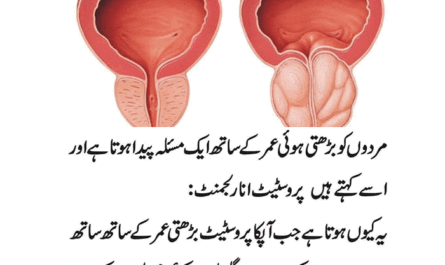Frequent urination, particularly during the night (nocturia), can be disruptive to daily life and may indicate an underlying health condition. While medications and medical interventions are available, natural remedies and lifestyle modifications can also help manage frequent urination and address its underlying causes. In this article, we’ll explore natural treatments for frequent urination and common causes of nocturia.
1. Natural Treatments for Frequent Urination
1.1. Bladder Training
- Bladder training involves gradually increasing the intervals between bathroom visits to improve bladder control.
- Start by scheduling bathroom breaks at set intervals and gradually increase the time between visits as your bladder capacity improves.
1.2. Kegel Exercises
- Kegel exercises strengthen the pelvic floor muscles, which support the bladder and urethra.
- To perform Kegels, contract the pelvic floor muscles as if you’re trying to stop the flow of urine, hold for a few seconds, then relax. Repeat several times throughout the day.
1.3. Dietary Changes




- Avoid bladder irritants such as caffeine, alcohol, spicy foods, and artificial sweeteners, which can exacerbate urinary frequency.
- Stay hydrated with water, but limit fluids in the evening to reduce nighttime urination.
1.4. Herbal Remedies
- Certain herbs such as saw palmetto, pumpkin seed extract, and corn silk may help alleviate urinary symptoms.
- Consult with a healthcare professional before trying herbal remedies, as they may interact with medications or exacerbate certain conditions.
2. Common Causes of Nocturia
2.1. Overactive Bladder (OAB)
- Overactive bladder is a condition characterized by sudden, uncontrollable urges to urinate, often accompanied by frequent urination.
- Treatment options for OAB may include bladder training, lifestyle modifications, medications, and in some cases, nerve stimulation or surgery.
2.2. Urinary Tract Infection (UTI)
- Urinary tract infections can cause frequent urination, along with burning or pain during urination, cloudy or foul-smelling urine, and pelvic discomfort.
- UTIs are typically treated with antibiotics prescribed by a healthcare professional.
2.3. Prostate Enlargement (BPH)
- Benign prostatic hyperplasia (BPH) is a common condition in older men characterized by enlargement of the prostate gland.
- BPH can cause urinary symptoms such as frequent urination, nocturia, weak urine stream, and difficulty starting or stopping urination. Treatment options may include medications, minimally invasive procedures, or surgery.
2.4. Diabetes
- Diabetes can lead to frequent urination due to excess glucose in the blood, which spills over into the urine, increasing urine production.
- Proper management of diabetes through medication, diet, exercise, and blood sugar monitoring is essential for controlling urinary symptoms.
3. Lifestyle Modifications for Managing Nocturia
3.1. Limit Fluid Intake Before Bed
- Reduce fluid intake in the evening to minimize nighttime urination.
- Avoid caffeinated or alcoholic beverages, which can increase urine production and worsen nocturia.
3.2. Elevate Legs During the Day
- Elevating the legs during the day can help reduce fluid accumulation and swelling, which may contribute to nocturia.
- Spend periods of time with legs elevated above heart level to promote fluid drainage and reduce nighttime urination.
3.3. Maintain a Healthy Weight
- Excess weight can put pressure on the bladder and worsen urinary symptoms.
- Adopting a healthy diet and engaging in regular physical activity can help manage weight and improve bladder function.
4. Conclusion
Frequent urination, especially at night, can significantly impact quality of life and may be indicative of underlying health issues. While medical treatment may be necessary in some cases, natural remedies and lifestyle modifications can also play a significant role in managing urinary symptoms and addressing their root causes. By incorporating bladder training, dietary changes, herbal remedies, and lifestyle modifications into your routine, you can take proactive steps towards reducing urinary frequency and improving overall bladder health.
5. FAQs about Frequent Urination and Nocturia
Q1: When should I see a doctor about frequent urination?
- A1: You should see a doctor if frequent urination is accompanied by other symptoms such as pain or burning during urination, blood in the urine, fever, or unexplained weight loss. Additionally, if frequent urination interferes with daily activities or disrupts sleep, it’s advisable to seek medical evaluation.
Q2: Can stress or anxiety contribute to frequent urination?
- A2: Yes, stress and anxiety can exacerbate urinary symptoms by triggering an overactive bladder or increasing muscle tension in the pelvic floor. Managing stress through relaxation techniques, mindfulness practices, and stress-reducing activities may help improve urinary symptoms.
Q3: Are there any natural supplements that can help with urinary symptoms?
- A3: Some natural supplements such as pumpkin seed extract, saw palmetto, and cranberry extract may help alleviate urinary symptoms associated with conditions like overactive bladder or benign prostatic hyperplasia (BPH). However, it’s essential to consult with a healthcare professional before starting any new supplement regimen to ensure safety and efficacy.
Q4: Can frequent urination be a sign of a more serious underlying condition?
- A4: Yes, frequent urination can be a symptom of various underlying health conditions such as diabetes, urinary tract infections, prostate problems, or bladder dysfunction. It’s essential to undergo a thorough medical evaluation to determine the underlying cause of urinary symptoms and receive appropriate treatment.






